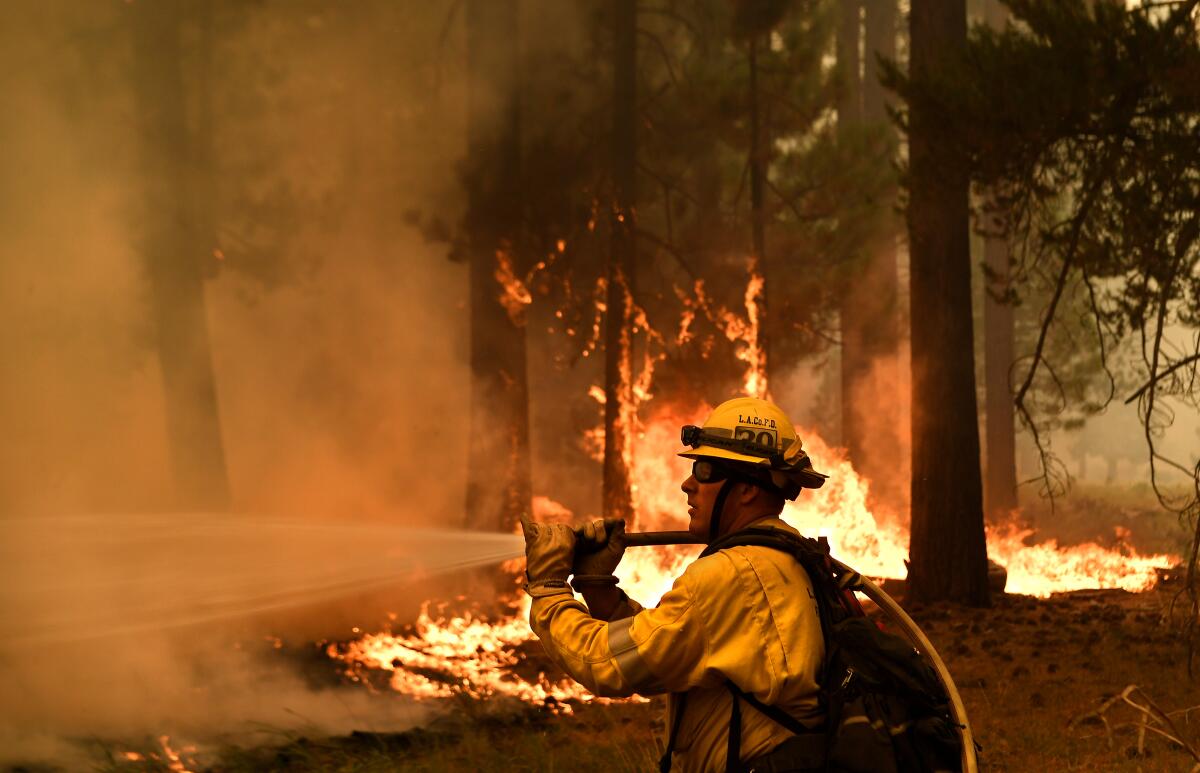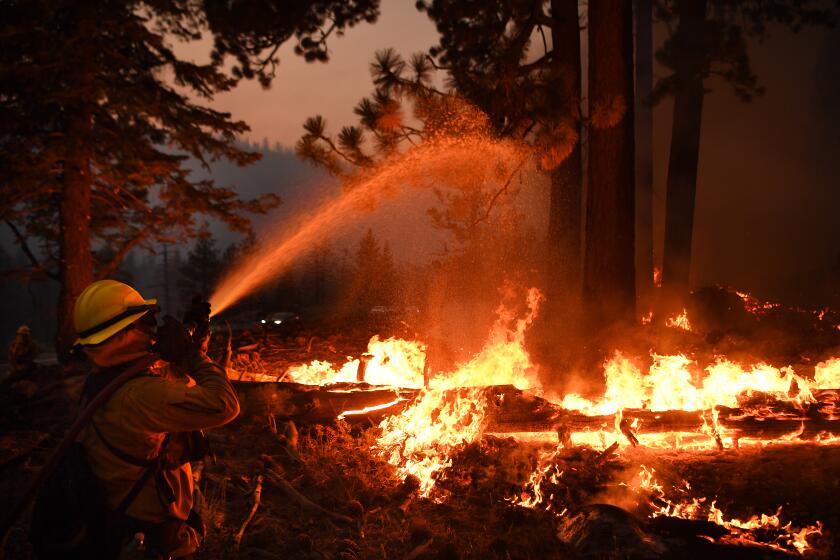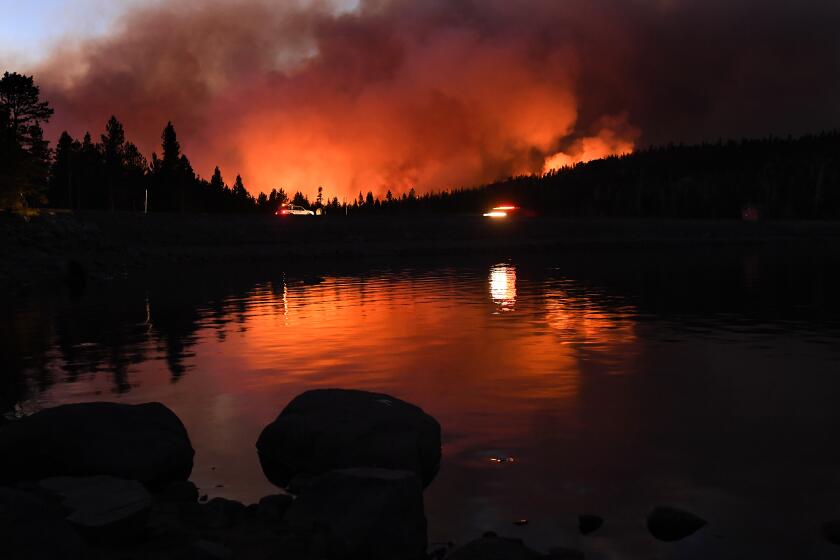Firefighters may steer the Caldor fire into the Tamarack fire. Here’s why

- Share via
Crews battling the massive Caldor fire have used a variety of methods to try to herd flames away from South Lake Tahoe, Calif., and neighboring Nevada: They have scraped and dug fire lines with hand tools, they have dragged bulldozer blades across the terrain and, visibility permitting, they have bombed the blaze with water and fire retardant from above.
But as the fire grows to more than 200,000 acres, one solution to keeping it from entering populated areas may be to direct it straight into the path of another blaze: the Tamarack fire.
“We are going to try and steer it into the Tamarack fire,” said Eric Schwab, operations section chief with the California Department of Forestry and Fire Protection. “It’s a fresh burn, and if we get it steered into there, whatever portion we get turned into it, that basically stops the spread of the fire. That’s a very valid tactic that we’re actively trying to do.”
Thousands rushed to leave South Lake Tahoe as the resort city came under an evacuation order due to the Caldor fire.
The lightning-sparked Tamarack fire, which ignited July 4, has burned through more than 68,000 acres. It has also spurred a statewide conversation about the federal “let it burn” policy as it defied expectation and grew beyond control. As of Wednesday, it was 82% contained.
Though it may seem as though corralling one fire into another could create more problems for those on the front lines of the fight, experts said it makes sense, so long as it can be achieved safely.
“A lot of the fuels have been burned over, so I’m sure that’s a good way to go,” said Craig Clements, a professor of meteorology and director of the Wildfire Interdisciplinary Research Center at San Jose State University.
Clements explained that because the Tamarack fire only recently seared through the area, there would be little vegetation left to burn. It could be an effective way to slow that side of the Caldor fire’s growth.
But, he added, the two fires are still several miles apart.
“That’s a lot of fire — a lot of terrain to get it up and over into the Tamarack,” he said, “but the way these fires are going, it is what it is. If the winds shift, it’s definitely going to burn that way.”
Caldor fire spokesman Ryan Lubben said Wednesday that staying “direct on the fire” remained firefighters’ top priority, including focusing on immediate structure defense and keeping the fire out of South Lake Tahoe.
But, he said, “we always look to the future, way out in front, and one of those things looking out is the fact that there’s old burn scars from different fires. If and when the fire was to move that far ... we can try to make it go toward more favorable fuels.”
The massive Caldor fire has been burning for 18 days. As of Wednesday night, it had seared through 207,931 acres and was 23% contained.
One thing Clements did not think was likely was the Caldor fire merging with the Dixie fire, which is burning across five counties to the north. That fire surpassed 844,000 acres Wednesday and was 52% contained.
The area between the Caldor and the Tamarack fire is fairly remote, he said.
Jason Hunter, a Caldor fire information officer, said “the potential for growth” still remains Wednesday as crews scrambled to defend structures around the Lake Tahoe Basin.
Like Clements, he said merging the Caldor fire with the Tamarack fire could make sense.
“The fuels of the existing burn are already reduced, so that would help slow the forward progress of another fire,” he said.
More to Read
Sign up for Essential California
The most important California stories and recommendations in your inbox every morning.
You may occasionally receive promotional content from the Los Angeles Times.













